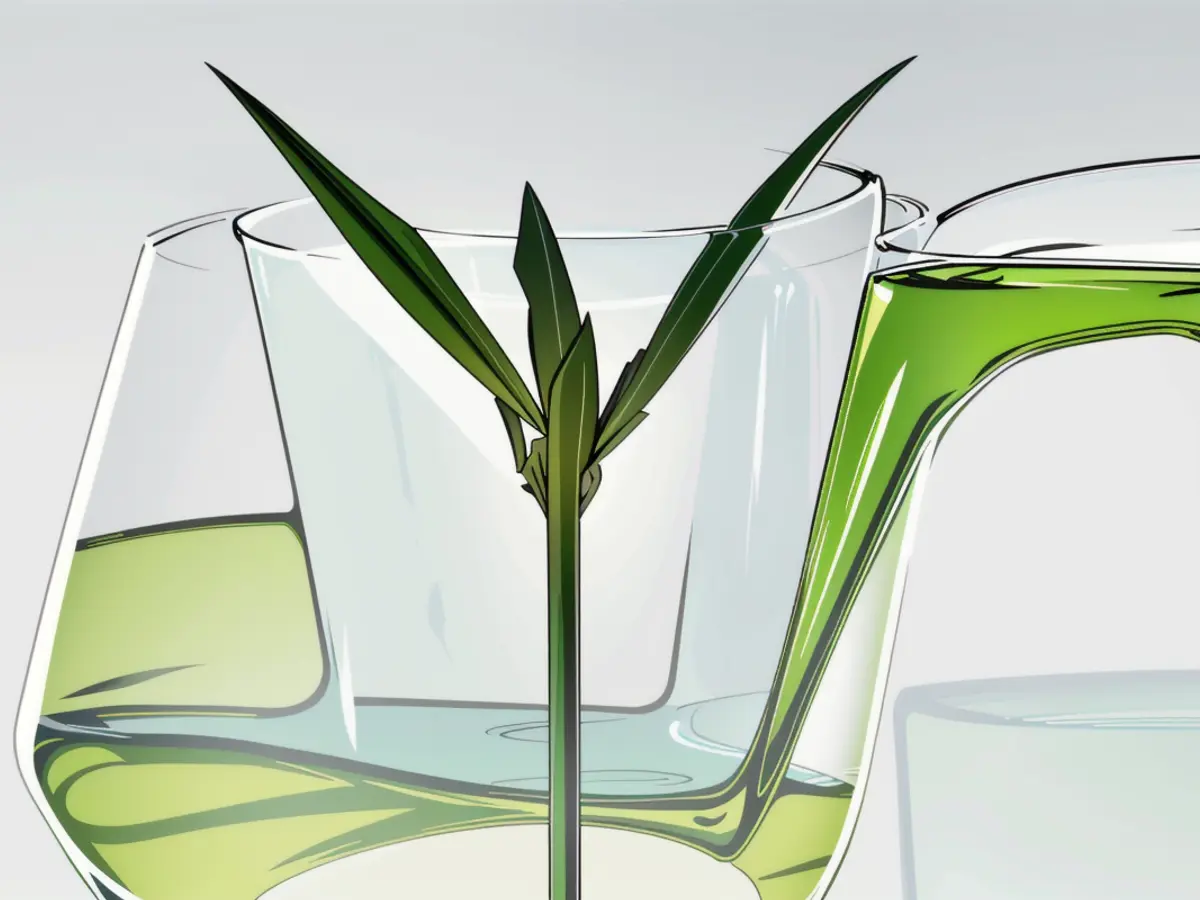Tate & Lyle Teams Up with BioHarvest Sciences to Develop Advanced Sweeteners
Potentially, could this collaboration lead to the discovery of the legendary elixir of sugar substitutes?
In recent developments, Tate & Lyle, renowned for producing sweeteners such as Splenda® Sucralose, TASTEVA® Stevia, and DOLCIA PRIMA® Allulose, has partnered with BioHarvest Sciences, leaders in green plant solutions, to create the upcoming wave of sweeteners applicable in beverages, snacks, and confectionery items. Could consumers finally be granted their long-awaited dream sweetener?
Tate & Lyle's century-plus experience in sweetener production and BioHarvest's prowess in delivering unique plant advantages set the stage for introducing low-/no-calorie sweeteners (LNCS) to market that offer outstanding taste and eco-friendly and sustainable products.
Abigail Storms, Senior Vice President, Global Sweetener and Fibre Platform at Tate & Lyle, spoke on their vision: "Our goal is to offer our clients the most recent innovations and truly be the pioneers in sugar reduction. Our partnership with BioHarvest underscores that commitment. By collaborating with innovators like BioHarvest, we position ourselves at the forefront of the Future of Food. We believe one of our strengths is in working with partners, combining the best of both, to help our customers better serve their consumers."
Ilan Sobel, CEO of BioHarvest Sciences, commented, "BioHarvest’s Botanical Synthesis is the sustainable industrial process technology consistently generating potent plant molecules economically. This partnership unlocks the revolutionary potential of this technology. Tate & Lyle’s vast analytical tools and sensory optimization capabilities, combined with BioHarvest’s 18 years of expertise in plant cell biology, will be employed to create healthier products without compromising food and drink taste, while preserving our environment for generations."
The Long-lasting Hunt for the Ideal Sweetener
The U.S. sweeteners market has undergone substantial changes in delivering superior taste over the last 50 years. In 1983, as a group brand director at The Coca-Cola Company, I observed the launch of Diet Coke with aspartame, significantly enhancing taste and skyrocketing low- and no-calorie beverage sales. Upgrades in heat stability followed, and more "natural" sweeteners like Stevia eventually emerged.

According to Innova Market Insights, the global market for non-sugar sweeteners could reach over $408 billion by 2032. However, a study on sweeteners, as reported, titled Moving Towards Healthier Eating Habits: Why Low- and No-Calorie Sweeteners Have a Crucial Role, indicated that considerable chances arise for LNCS, as only 8% of sweetened items include LNCS alone, with an additional 5% incorporating both LNCS and sugars. With Americans still exhibiting high obesity rates and added sugars drawing scrutiny, alongside consumer demand for healthier foods and beverages, LNCS are primed for strong growth.
What Tomorrow's Sweeteners Look Like
The anticipated advancement stemming from the Tate & Lyle/BioHarvest partnership envisions the potential for a sweetener offering consumers the elusive blend they've long desired: taste, plant-based, and sustainable. Concretely:
- Taste. Research after research verifies that taste is the number 1 reason consumers choose to purchase foods and beverages. A Georgetown University study, titled The Power of Portions shared in March 2024, revealed that 97% of consumers cited taste as the primary factor when making food decisions. While progress has been made over the past 5 decades in enhancing LNCS taste, more refinements are needed. As per a 2023 study by the International Food Information Council (IFIC), among those scarcely eating or avoiding LNCS, dissatisfaction with taste is their top reason for avoiding them. BioHarvest’s botanical synthesis process technology is adept at regulating the ratio of "sweet" molecules to "bitter" ones, thereby mitigating the perennial problems with bitterness and aftertaste in sweeteners.
- Plant-based. IFIC data shows that LNCS consumers seek out plant-derived sweeteners, such as Stevia and monk fruit sweeteners, referred to as "natural," twice as often compared to those labeled as "artificial" (44% vs. 21%). These "natural" sweeteners were also perceived as the safest to consume. Given the plant-based nature of BioHarvest’s technology, coupled with its non-GMO status, sweeteners derived from this partnership will cater to growing consumer demand for cleaner and better-for-you ingredients.
- Sustainable. A survey conducted by Sodexo’s International Sustainable Food Barometer revealed that 72% of Americans view the need for a more sustainable food system as critical and most (66%) hold a favorable perception of sustainable food. BioHarvest’s technology relies on capturing the benefits of plants consistently and reliably, resulting in its technology being able to capture plants' advantages from limited sources and reproduce it through its proprietary production method. This implies that the requirement for extensive land to supply plant-based foods and beverages no longer exists, and significant water and fertilizer reductions will be achieved.
For decades, the quest for the Holy Grail of sugar substitutes has been ongoing. I'm optimistic that the blend of BioHarvest's innovative tech and Tate & Lyle's ingredient mastery will produce fresh sweeteners. These sweeteners should offer the health-conscious perks consumers crave, without compromising their satisfaction in their preferred eats and drinks. Here's to keeping my fingers crossed.
Tate & Lyle, in collaboration with BioHarvest Sciences, aims to develop plant-based sweeteners that will be suitable for use in beverages, snacks, and confectionery items, potentially providing consumers with their desired low-/no-calorie sweetener.
The upcoming sweeteners from this partnership are expected to not only offer taste similar to sugar but also be derived from sustainable sources, aligning with growing consumer demand for cleaner and better-for-you ingredients.
In a study titled Moving Towards Healthier Eating Habits: Why Low- and No-Calorie Sweeteners Have a Crucial Role, it was highlighted that there's a significant opportunity for low-/no-calorie sweeteners (LNCS) in the market, given increasing consumer demand for healthier food and beverage options.






